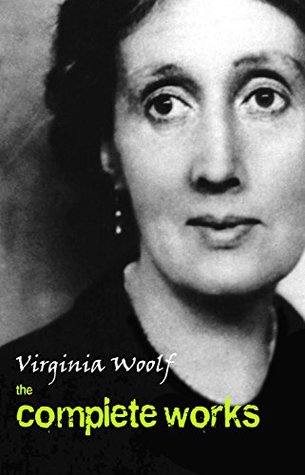More on this book
Community
Kindle Notes & Highlights
She had escaped. But that young man had killed himself.
Somehow it was her disaster—her disgrace. It was her punishment to see sink and disappear here a man, there a woman, in this profound darkness, and she forced to stand here in her evening dress. She had schemed; she had pilfered. She was never wholly admirable. She had wanted success, Lady Bexborough and the rest of it. And once she had walked on the terrace at Bourton.
No pleasure could equal, she thought, straightening the chairs, pushing in one book on the shelf, this having done with the triumphs of youth, lost herself in the process of living, to find it, with a shock of delight, as the sun rose, as the day sank.
It will be a solemn sky, she had thought, it will be a dusky sky, turning away its cheek in beauty. But there it was—ashen pale, raced over quickly by tapering vast clouds. It was new to her.
Last time they met, Peter remembered, had been among the cauliflowers in the moonlight, the leaves “like rough bronze” she had said, with her literary turn; and she had picked a rose.
“Yes, I have ten thousand a year”—whether before the tax was paid or after, she couldn’t remember, for her husband, “whom you must meet,” she said, “whom you would like,” she said, did all that for her.
But to be frank (and she felt that Peter was an old friend, a real friend—did absence matter? did distance matter? She had often wanted to write to him, but torn it up, yet felt he understood, for people understand without things being said, as one realises growing old, and old she was,
“Everybody in the room has six sons at Eton,”
it must be lonely at his age to have no home, nowhere to go to.
plants, hydrangeas, syringas, very very rare hibiscus lilies that never grow north of the Suez Canal,
as the night grew later, as people went, one found old friends; quiet nooks and corners; and the loveliest views.
For she had come to feel that it was the only thing worth saying—what one felt. Cleverness was silly. One must say simply what one felt.
“But I do not know,” said Peter Walsh, “what I feel.”
Despairing of human relationships (people were so difficult), she often went into her garden and got from her flowers a peace which men and women never gave her.
now that one was mature then, said Peter, one could watch, one could understand, and one did not lose the power of feeling, he said. No, that is true, said Sally. She felt more deeply, more passionately, every year. It increased, he said, alas, perhaps, but one should be glad of it—it went on increasing in his experience.
Elizabeth had felt him looking at her as she talked to Willie Titcomb. So she went to him and they stood together, now that the party was almost over, looking at the people going, and the rooms getting emptier and emptier, with things scattered on the floor.
And Richard and Elizabeth were rather glad it was over, but Richard was proud of his daughter. And he had not meant to tell her, but he could not help telling her. He had looked at her, he said, and he had wondered, who is that lovely girl? and it was his daughter! That did make her happy. But her poor dog was howling.
What does the brain matter,” said Lady Rosseter, getting up, “compared with the heart?”
What is this terror? what is this ecstasy? he thought to himself. What is it that fills me with extraordinary excitement? It is Clarissa, he said. For there she was.


